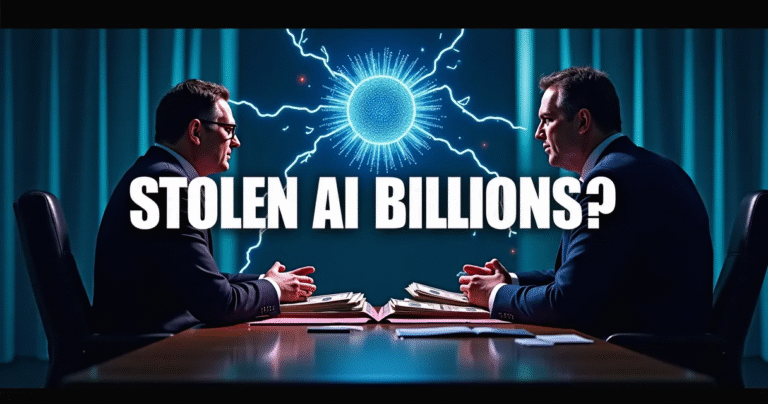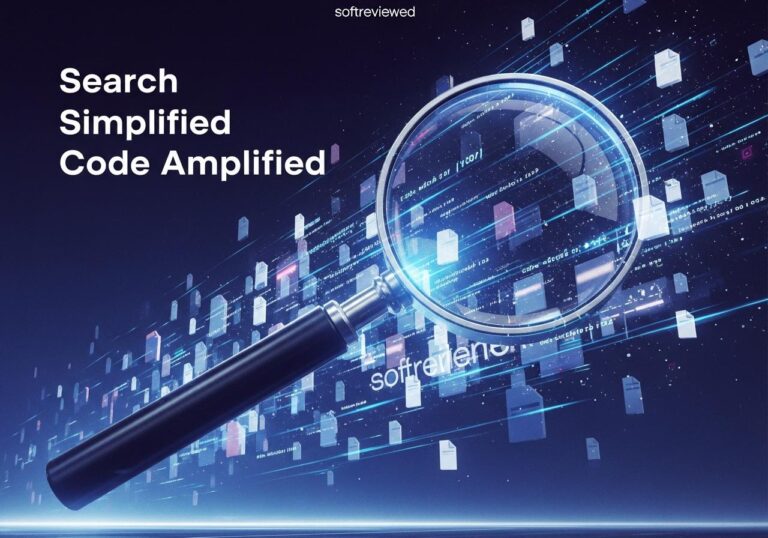OpenAI’s $6.5B Acquisition Legal Battle
A high-stakes trademark dispute threatens OpenAI’s ambitious hardware venture with Jony Ive
$6.5 Billion Acquisition Under Threat
OpenAI faces significant legal challenges over its purchase of Jony Ive’s io startup, jeopardizing the high-profile AI wearable device project valued at $6.5 billion.
Trademark Clash: “io” vs. “iyO”
Google X spinoff iyO alleges brand confusion between the competing names, successfully securing a court order forcing OpenAI to halt all io-related branding activities.
Product Details Emerge Amid Legal Battle
The disputed io-branded wearables aim to integrate AI into voice-activated hardware, though promotional materials have been removed pre-launch due to the ongoing litigation.
Internal Responses: Leadership Pushback
CEO Sam Altman publicly dismissed the lawsuit as “silly,” yet OpenAI has complied with court orders by scrubbing all io-related content ahead of mandated deadlines.
Risks to Valuation and Collaboration
Prolonged litigation could create a “valuation discount” for the venture, potentially deterring investors and complicating partnerships crucial for the hardware project’s success.
Alleged Misuse of Confidential Info
iyO claims OpenAI improperly leveraged sensitive details about its product roadmap to accelerate the competing io acquisition and development efforts.
Is This Silicon Valley's Nastiest Lawsuit? Google Spin-Off Accuses OpenAI of Stealing Its AI Hardware Idea
A legal bombshell has rocked the AI industry, sparking what some are calling the "most dramatic tech lawsuit of the year." IYO, a hardware startup spun out of Google's experimental X lab, has filed a lawsuit against AI giant OpenAI, its CEO Sam Altman, and legendary designer Jony Ive. The lawsuit paints a picture straight from a screenplay: a small startup pitches its groundbreaking technology to a powerful player, only to be rejected and then watch as that same player announces a suspiciously similar product. This is a high-stakes conflict involving industry titans, billions of dollars, and the very future of personal AI hardware.
The Heart of the Accusation: A Tale of Betrayal?
The core of the lawsuit is IYO's claim that OpenAI and Jony Ive's new venture, "io," is a direct copy of its technology and, crucially, its brand. Having spent seven years and over $60 million developing its "IYO ONE" audio computer, IYO is now fighting to protect its identity and innovation in a federal court.
From Collaborative Talks to Courtroom Battles
According to the legal complaint, the story began in 2022. IYO alleges that it engaged in extensive discussions with OpenAI and Ive's design firm, LoveFrom, about potential investments and collaborations. These weren't just casual coffee meetings. IYO claims it shared highly confidential information, including product concepts, business plans, and even gave prototypes of the IYO ONE to OpenAI employees for demonstrations. IYO believed a partnership was on the horizon, but the communication eventually went cold. The silence was broken by the shocking announcement of OpenAI's acquisition of "io," a new hardware company from Jony Ive, for a reported $6.5 billion.
The "Eerily Similar" Product and Brand
The lawsuit hinges on more than just alleged idea theft; it's a direct claim of willful trademark infringement. IYO, which is pronounced "Eye-Oh," argues that OpenAI's choice of "io" — which is phonetically identical — is no coincidence and is designed to create confusion in the market.
The key points of IYO's allegations are:
- 📌 Prior Knowledge: IYO asserts that OpenAI and its partners were fully aware of the IYO brand and technology long before the "io" announcement.
- 📌 Misappropriation of Information: The lawsuit claims OpenAI used the collaborative talks as a pretense to gather sensitive information about IYO's screen-free, voice-controlled device.
- 📌 Bad Faith Actions: IYO contends that just days before the "io" announcement, OpenAI representatives were still requesting detailed technical information, suggesting a deliberate effort to exploit IYO's intellectual property.
OpenAI's Rebuttal: A "Silly" Misunderstanding
OpenAI and its leadership have fired back, strongly refuting the claims. On the social media platform X, CEO Sam Altman publicly dismissed the lawsuit as "silly, disappointing and wrong," suggesting it was a tactic born out of failed acquisition talks.
Denying Prior Knowledge and Intent
In a formal court declaration, Sam Altman stated that he had no knowledge of IYO or its founder's work in AI when the name "io" was chosen back in 2023. He claimed he only became aware of the company in 2025. OpenAI's official response is that the lawsuit is a case of bad-faith tactics from a company that repeatedly and unsuccessfully sought investment. The company has complied with a temporary restraining order to remove "io" branding from its website but maintains that it disagrees with the complaint and is exploring its legal options.
Distinguishing "io" from IYO ONE
OpenAI is also working to create distance between its planned product and IYO's. According to court documents, the company has clarified its position on the "io" device.
- ➡️ Different Form Factor: OpenAI states that while the design isn't final, the "io" device is not an in-ear or wearable device like the IYO ONE.
- ➡️ No Imminent Launch: The company has assured the court that it has no plans to sell, offer, or even advertise any "io" products for at least a year.
This strategy aims to show that the two products are not direct competitors and that any potential market confusion is purely hypothetical at this stage.
A Head-to-Head Look: Comparing the Alleged Rivals

While details about OpenAI's "io" device remain under wraps, the lawsuit and subsequent court filings provide enough information to draw a comparison based on the claims and available facts.
| Feature | IYO ONE (by IYO) | OpenAI's "io" (as alleged/described) |
|---|---|---|
| Form Factor | Ear-worn, screen-free audio computer | Voice-controlled AI hardware (not in-ear or wearable) |
| Primary Interaction | Advanced voice commands, natural language | Voice commands, natural language |
| Core Functionality | AI assistant for searches, messaging, and more | AI and internet interaction without a screen |
| Branding | "IYO" (pronounced "Eye-Oh") | "io" (phonetically identical) |
| Development Stage | In development for 7+ years, prototypes exist | Early stages, design not finalized |
Echoes in the Valley: What the Industry is Saying
This legal battle has become a major topic of conversation in the tech world. The court's decision to grant IYO a temporary restraining order (TRO) — a move legal experts say is not taken lightly — has given significant weight to the startup's claims.
A Startup's Stand Against a Tech Titan
Jason Rugolo, co-founder of IYO, has framed the fight in classic David vs. Goliath terms. "It is amazing to me that Sam Altman, of all people, is part of a Goliath company trying to trample on the rights of our small startup," he stated, highlighting Altman's past as a champion for smaller companies. The case has been held up as an example of the challenges startups face when protecting their intellectual property from industry giants.
The Broader Conversation on Tech Ethics
The dispute raises larger questions about ethics and competition in the AI space. Trademark attorney Josh Gerben noted that IYO's case appears legally strong, especially given the phonetic similarity and reported instances of confusion. The outcome could set a precedent for how intellectual property law is applied in emerging technology sectors, forcing large corporations to be more diligent in their branding and product development processes. More details and documents related to the case are publicly available, including filings with the San Francisco Federal Court.
The Path Forward: A High-Stakes Legal Chess Match
The lawsuit is far from over. With a TRO in place and a formal hearing scheduled for October 2025, the legal wheels are just beginning to turn.
Here is what to expect next:
- 🚀 Discovery Phase: Both legal teams will dig for evidence, including emails, internal documents, and depositions from key figures like Altman and Ive.
- 🚀 Further Court Rulings: The judge will rule on additional motions, which could steer the case toward a settlement or a full trial, currently scheduled for January 2028.
- 🚀 Impact on OpenAI's Ambitions: This legal cloud could significantly delay or force a major rebranding of OpenAI's highly anticipated entry into the hardware market with Jony Ive.
Beyond the Courtroom: The Ripple Effects of the Lawsuit
The IYO vs. OpenAI case is more than a simple trademark dispute. It's a gripping narrative about innovation, intellectual property, and power dynamics in Silicon Valley. Whether IYO's allegations are proven true or OpenAI successfully defends its position, the resolution will have lasting consequences. This legal drama serves as a critical test for how our systems protect new ideas in the age of AI and will be a story that everyone in the tech industry watches with bated breath.







